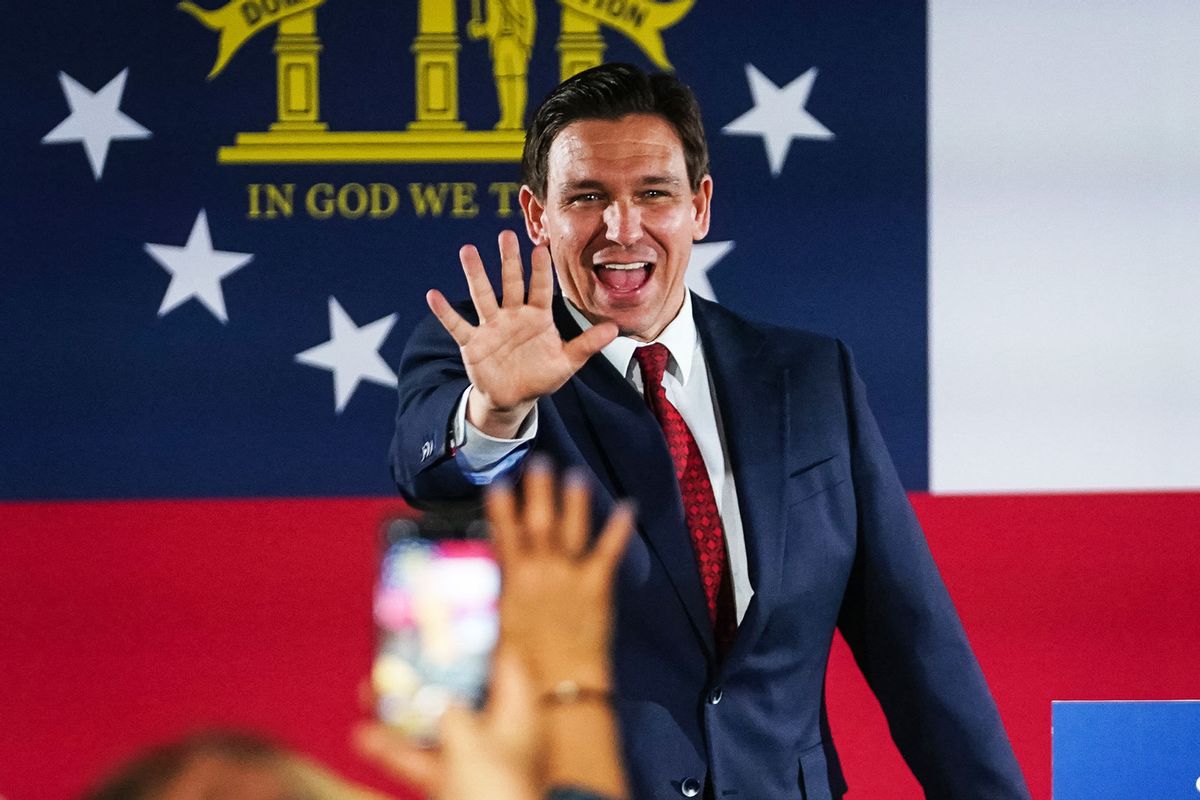“Empty posturing”: Experts rip DeSantis’ “cheap and performative” threat to block Trump extradition

Florida Gov. Ron DeSantis, who is widely expected to challenge Donald Trump for the 2024 Republican presidential nomination, said that he would not cooperate with New York prosecutors on any extradition requests in case one is needed to arrest the indicted former president.
“The weaponization of the legal system to advance a political agenda turns the rule of law on its head. It is un-American,” DeSantis said in a statement posted to Twitter.
“The Soros-backed Manhattan District Attorney has consistently bent the law to downgrade felonies and to excuse criminal misconduct. Yet, now he is stretching the law to target a political opponent,” he continued, not mentioning Trump by name.
“Florida will not assist in an extradition request,” DeSantis concluded, “given the questionable circumstances at issue with this Soros-backed Manhattan prosecutor and his political agenda.”
Left-wing philanthropist George Soros has been a frequent target of baseless right-wing antisemitic conspiracy theories. Former federal prosecutor Joyce White Vance dismissed DeSantis’ threat as “empty posturing,” but argued that “the appeal to antisemitism, the Soros reference, should give every Jewish voter & anyone concerned about hate reason to reject DeSantis. Believe them when they show you who they are.”
Legal experts say that DeSantis can try to resist a move to extradite, but technically has no power to stop it. He would also not play any role if Trump surrenders.
In a statement obtained by the Washington Post, a Bragg spokesperson said the Manhattan district attorney’s office has contacted Trump’s attorney “to coordinate his surrender to the Manhattan D.A.’s Office for arraignment on a Supreme Court indictment.”
In order to decline an extradition request, DeSantis would need solid legal reasoning. The Constitution states in Article IV, Section 2, Clause 2 that no state has the right to decline an extradition request from another one.
“A person charged in any state with treason, felony, or other crime, who shall flee from justice, and be found in another state, shall on demand of executive authority of the state from which he fled, be delivered up, to be removed to the state having jurisdiction of the crime,” the Constitution states.
This is also backed up by federal law, which says states must comply with other states’ extradition requests.
Want a daily wrap-up of all the news and commentary Salon has to offer? Subscribe to our morning newsletter, Crash Course.
Michael Bachner, a former prosecutor in Manhattan, said in an interview with the Post on Thursday that “DeSantis would be very hard pressed legally to refuse” an extradition request for Trump because he only plays an administrative role in the case.
Florida permits law enforcement or other individuals to arrest someone they know is subject to a criminal charge, Bachner explains, which means a governor doesn’t have to get involved. However, he also notes that it’s unlikely extradition will even be necessary as Trump has not signaled that he would resist his arrest.
Former federal and state prosecutor Elie Honig added that even if the situation escalated to that point, “any effort to oppose interstate extradition would fail legally. The Constitution, federal law, and prior cases make this clear.”
Bachner also said it would be “politically expedient” for DeSantis to say he won’t assist with one.
Bill Kristol, an avid “Never Trumper,” accused DeSantis of being “cheap and performative” during an appearance on Scripps News.
“DeSantis is just tossing this off,” he said. “Obviously, it’s cheap and performative and it doesn’t mean much…He’s just grandstanding…It shows a real contempt for the rule of law in this country.”
Read more
about the Trump indictment

